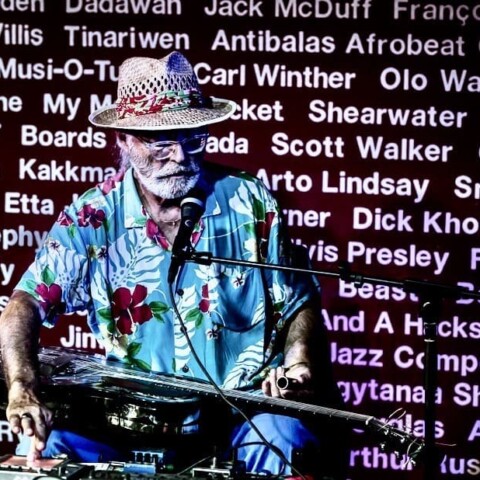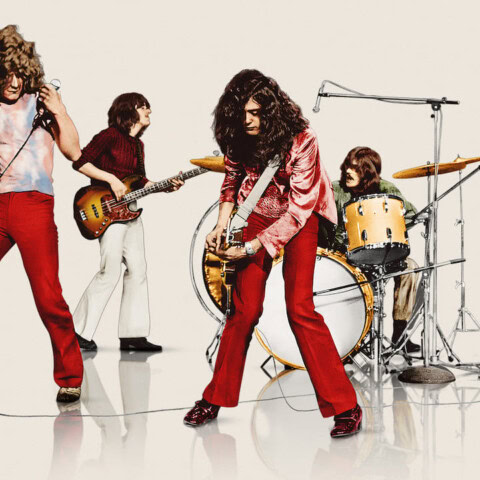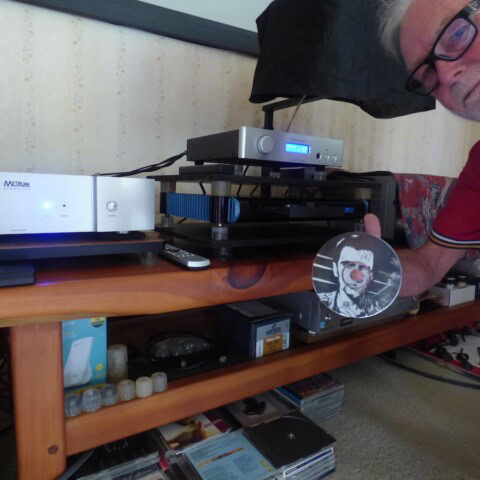ANDREW JOHNSTONE tells the strange and bizarre saga of controversial Hamilton legends Mobile Stud Unit.
WARNING: CONTAINS NAUGHTY WORDS AND UNSAVOURY PICTURES.
 From the Waikato Times, Thursday, October 9, 2003:
From the Waikato Times, Thursday, October 9, 2003:
Hamilton punk rock band MSU celebrate their aluminium anniversary with the “Monsta 10-year Break-up/Blowout Extravaganza Gig” next week. MSU have become something of an icon in the Hamilton music scene. They have released three albums, had four nationwide tours of NZ’s University Orientation circuit and six number one hits on student radio. Lead singer Rohan ‘Marxi’ Marx plans to reunite the four current and seven previous members for the anniversary performance. Marx: “MSU appeal to the more male audience, it’s not that we are misogynistic, but we do have a more male bend – it’s no more sinister than that. We write our stories and songs with a more male focus, creating for our own amusement with a self-effacing sense of humour, taking the piss and having a good time.”’ – Gail Ormsby
A few years back I was hosting the breakfast show on Hamilton’s Free FM and once in a while it was my habit to bring in someone with strong opinions to review the events of the week. On this occasion it was local identity Dr Richard Swainson (or Dr Ezy as he was so named for the many years he managed the Hillcrest branch of Video Ezy) and he was asked, as was everyone, to bring along a song.
He duly arrived and passed over a CD and a slip of paper with the song’s name written on it. I didn’t take too much notice as I slid the CD into the player and prepped it to go, but I did notice the cover, which featured a de-shelled mussel overwritten with the word ‘Flaps’. I thought briefly that the image possessed sexual overtones, but being otherwise occupied I put the observation away for later analysis.
The song itself was called ‘Wheel Of Clitoris’, and still the penny remained firmly stuck in the slot even as the words rolled out live across a goodly proportion of the greater Waikato and Bay of Plenty. I was too busy chatting with my guest organising our next segment to take much notice and it was only the imposing figure of the station manager standing at the studio window making slashing motions across his throat that finally caused the penny to fall and the mental machinery to spring into motion.
‘Wheel Of Clitoris’ is a rather clever and catchy little track, and an unsubtle exploration of the art of cunnilingus, and judging by the parade of phone calls that followed it took a number of unwary listeners by surprise. It was also my first real introduction to a band I had hitherto only known by vague reputation.
Dr Swainson it turns out had been the band’s ‘officially sanctioned’ photographer and number one fan and thought the whole episode hilarious, a smooth stunt well played. By some miracle I escaped another suspension and on the upside I had a nice little story to bandy about, one that precariously tied me into the broader tale of one of the city’s most notorious musical episodes, the legendary Mobile Stud Unit. As for the song itself, this lyrical sample pretty much sums up the overall tone of the band:
Walking down the road minding my own business/ Going down to the dairy to buy some smokes/You said I am woman hear me roar/So I licked your pussy till my mouth was raw.
The Mobile Stud Unit (MSU for short) cannot be described without the personage of Rohan Marx at fore and centre. A diminutive figure with thinning hair and prescription glasses, he was an unlikely figure, found often as he was parading about town in his famous 1970s style lime green jumpsuit, the same one he wore for any number of MSU gigs around the city and later, the nation.
Marx, a small town boy from the South Waikato (Otorohanga), was big trouble in a little package. After a youth of misappropriating bottles from the backs of dairies and the town’s one supermarket, and claiming refunds on them to feed his ‘Spacies’ addiction, he began his high school years as a boarder at Hamilton Boys High from where he was quickly dispatched after an incident or three with alcohol.
 Eventually enrolled at Te Awamutu High (the next town up from Otorohanga) he discovered a mentor in the form of the school’s music teacher George Brooks, who helped give the young Marx direction, and before long he was singing in the school’s jazz choir where he discovered the joys of performance. Marx: “I learned the rudimentaries of stagecraft and discovered that I was not so much a musician as I was a performer, a conduit between the band and audience. After that all I wanted to do was play live music.” Which is exactly what happened in 1993 when Marx and a loose collective of friends from Otorohanga and Te Awamutu met up in Hamilton at the University of Waikato and formed a band.
Eventually enrolled at Te Awamutu High (the next town up from Otorohanga) he discovered a mentor in the form of the school’s music teacher George Brooks, who helped give the young Marx direction, and before long he was singing in the school’s jazz choir where he discovered the joys of performance. Marx: “I learned the rudimentaries of stagecraft and discovered that I was not so much a musician as I was a performer, a conduit between the band and audience. After that all I wanted to do was play live music.” Which is exactly what happened in 1993 when Marx and a loose collective of friends from Otorohanga and Te Awamutu met up in Hamilton at the University of Waikato and formed a band.
Initially called Herman And The Hymens, they performed the entirety of Side A of the Violent Femmes’ self-titled debut album at the annual Contact FM Christmas Busking Contest. Victorious co-winners, they shared the cash prize with another local band The Romantic Andes, while claiming the secondary prize of a support slot with The Muttonbirds at the following year’s University of Waikato Orientation festivities.
The fledgling band decided to try out some originals at a gig that included a somewhat notorious incident with the man destined to become one of the nation’s leading singer/songwriters. A bet saw Marx body-slam Muttonbirds leader Don McGlashan hard onto the stage during the sound-check, and causing some moderate injuries and a world of hard feelings.
A rather upset McGlashan called the band “a bunch of pissed wankers,” a phrase that provided them with a suitable slogan which was oft used on posters and other promotional material for a long time thereafter. MSU was a shambolic unit of seven that performed a series of songs Marx describes as “ridiculous shit juxtaposed together. We were a cacophony that could barely play in tune but it was a lot of fun.” Perhaps not for McGlashan, but it was a beginning.
The name Mobile Stud Unit came via Gareth Robb, the band’s first drummer. It was a name his sister had been using to describe the hot guys at Te Awamutu College, and it seemed to sit well and without irony considering that the band would never come anywhere close to being sex gods. This was a boys’ band playing lads music and as Marx notes during our interview, only once during their career did a female audience member pick up a member of the band for sexual gratification, fulfilling for one lad at least a rock and roll fantasy that would remain forever but a dream for the rest of the collective.
 The lucky lad was guitarist Dave O ‘Shea, who was ‘had’ on the steps of the Dunedin Post Office at 4am in the morning after a gig at the University of Otago a year or so later. The young lady in question thought she was shagging a member of the 3Ds (who MSU had opened for earlier in the evening) and was somewhat upset if not sickened when she learned the truth of the encounter.
The lucky lad was guitarist Dave O ‘Shea, who was ‘had’ on the steps of the Dunedin Post Office at 4am in the morning after a gig at the University of Otago a year or so later. The young lady in question thought she was shagging a member of the 3Ds (who MSU had opened for earlier in the evening) and was somewhat upset if not sickened when she learned the truth of the encounter.
By the end of 1993 the band had improved markedly, and capped off the year opening for The Able Tasmans at a university gig. Marx: “It was the first time we played with a full sound kit and engineer. It went off. I remember thinking just how far we had come. We played in time and we had a set list of properly constructed songs. We had turned from a fun shambolic mess into a finely tuned outfit.” But it was not to last.
The original band members were quietly falling away and through the next year the line-up remained volatile as new and old members came and went. Despite the uncertainties the band managed to produce their first album – 1994s My Pyjamas Smell Acidicky – which featured the band’s first notable student radio hit ‘Bob’. A song about a breakup, ‘Bob’ was personal tragedy made comic.
The cassette (recorded in guitarist Jamie Stone’s flat on a four-track driven by Dave Whitehead, latterly of sound design company White Noise Limited, who created the sound art for films like Lord Of the Rings and The Hobbit trilogies, among others) featured a hand-stitched flannelette cover, made from old pyjamas, with cordial split over the fabric to make it look like they’d been pissed in.
A Waikato Times article from March 23, 1994 describes the band as ‘being out to save the Young White Male ethic from extinction’. Marx: “A lot of young white males are unsure of their identity. They’ve been pecked at by just about everybody. Everything they’ve grown up to believe in is wrong. That’s why we have to redefine the young white male’s identity – it’s in danger of slipping from the culture.”
 Marx goes on to describe the band’s modus operandi while offering some insight into the bands broader musical philosophy: “We usually don’t tune up for gigs because it sounds more interesting that way. We try to keep the songs simple enough for the average person to grasp. We are not like some artsy-fartsy French movie, there is really only one level. Too many Hamilton bands take themselves too seriously and we offer some light relief and people seem to like it.”
Marx goes on to describe the band’s modus operandi while offering some insight into the bands broader musical philosophy: “We usually don’t tune up for gigs because it sounds more interesting that way. We try to keep the songs simple enough for the average person to grasp. We are not like some artsy-fartsy French movie, there is really only one level. Too many Hamilton bands take themselves too seriously and we offer some light relief and people seem to like it.”
The band’s typically non-PC attitude, a trait well explored in song and more notably in band posters, often saw them in conflict with various feminist groups on campus as well as the LGBT community, hipsters, hippies and rock stars. Besides The Muttonbirds, they unintentionally fell offside with Head Like A Hole with the satirical ‘Head Up Yer Hole’ and pretty much anyone else easily offended.
Often the source of official complaints to various university authorities, all this but served to firm up the band’s mythology, drawing more of the ever-curious to gigs of ever-increasing size. Marx: “We were a reaction against the PC fashion that was defining the Waikato University scene at the time, that and the shoegazer bands that were playing to audiences of three or four people around the city.”
By 1995 the original Mobile Stud Unit (Jamie Stone, Jude Richards, Dave O’Shea, Gareth Robb and Jock Ellis) had moved on, leaving Rohan to his own devices. A chance meeting with drummer, songwriter and broadcaster (Contact FM and later UFM) Dean Ballinger found Marx with a suitable creative partner and a chance to rebuild the band. Hamilton alt-scene stalwart Chris Paki took over guitar duties and ‘Stormtrooper’ Huw O’Connor the bass. Marx: “In a matter of months we went from folksy vaudeville to British inspired punk.”
The band is prominently featured on the cover of the August 25, 1997 edition of The Waikato Times. It is a photo from their performance at the Contact FM ‘Battle Of The Bands’ at the Wailing Bongo with Rohan Marx to the fore in all his lime green glory. Despite losing to The Nerve (composed of former MSU members Jude Richards, Jamie Stone and Joko Ellis) the second incarnation of MSU managed to steal the glory, if not the main prize.
 Later in1997 the band released their second album Blood Spew. Named for an incident on Hood Street in Central Hamilton when Rohan was out on a bender and started vomiting blood (turned out to be the first symptom of an oncoming hiatus hernia) it was recorded by local sound icon Dan Howard and mixed by Scott Newth (who was destined to find his fortune as the Datsun’s soundman). Marx: “It’s my favourite because the energy and enthusiasm comes through and the rawness and proficiency are all there in just the right amounts.”
Later in1997 the band released their second album Blood Spew. Named for an incident on Hood Street in Central Hamilton when Rohan was out on a bender and started vomiting blood (turned out to be the first symptom of an oncoming hiatus hernia) it was recorded by local sound icon Dan Howard and mixed by Scott Newth (who was destined to find his fortune as the Datsun’s soundman). Marx: “It’s my favourite because the energy and enthusiasm comes through and the rawness and proficiency are all there in just the right amounts.”
1997 was also the year that saw compulsory student unionism come to an end at Waikato University, and with it most of the vibrant music scene the fees paid for including student radio station Contact FM and student venue The Wailing Bongo. To close off the Bongo, MSU headlined six bands for $3. Six hundred people turned up and to make the occasion all the more memorable, Marx decided to set himself on fire.
Wearing a homemade fire suit (wet jeans, wet jersey and welding gloves on top of wet surgical bandages) he was doused in two litres of petrol and lit with a cigarette. “I went up like a human fireball and started to boil under all the wet gear. Helpful lads from the audience tried to douse the flames with beer to no effect. Sadly, the whole stunt was poorly timed and only 70 people witnessed it.” (The fire was eventually extinguished and Marx emerged from under all the gear with only superficial burns to his head and nose).
In 2004, the band teamed up with Datsuns’ guitarist Christian Livingstone and recorded Flaps in their makeshift studio in a room above the Cambridge Town Hall. The success of Flaps caught everyone by surprise, and the small run of 400 copies (burned on a home computer) sold out almost immediately.
The albums combined yielded a number of student radio hits including ‘Tony Tourettes’ (from Flaps) – a song about a bloke who gets stabbed in the head and develops Tourettes Syndrome and is later cured by a hit on the head. The chorus says it all –
Fucken fucken fucken fuck fuckity shit fuckity fuck cunt cock shit piss you fucking wank you fucking bitch.
‘Beef Curtains’ (from Blood Spew) is an ode to vaginas, and is played out through an extended visual metaphor about a man living inside one. And then there is ‘Stu’s Pie Cart’, the straightest song the band ever did, which turned out to be its most enduring and popular.
 Marx: “Stu owned the River City Diner, a mobile food cart that he set up near Steele Park off Grey Street in Hamilton East every Wednesday night through Sunday morning, feeding pissed students on their way home from town. The band got to know him and we roped him into voicing our adverts and cook sausages at gigs. I wrote a song about him after I heard he had died. It works because it’s a heartfelt ode to a friend who hadn’t died; the council had just shut him down on hygiene grounds. It is probably the best MSU song because it embodies all the stages of the band and was something other than depraved. It was a proper serious song that was still fun.”
Marx: “Stu owned the River City Diner, a mobile food cart that he set up near Steele Park off Grey Street in Hamilton East every Wednesday night through Sunday morning, feeding pissed students on their way home from town. The band got to know him and we roped him into voicing our adverts and cook sausages at gigs. I wrote a song about him after I heard he had died. It works because it’s a heartfelt ode to a friend who hadn’t died; the council had just shut him down on hygiene grounds. It is probably the best MSU song because it embodies all the stages of the band and was something other than depraved. It was a proper serious song that was still fun.”
Stu Nicholls actually did die in 2015. “He was a fucking character and he loved the song and he said quite often, ‘play that at my funeral’. One of my favourite memories of the band is hearing the song being played at the funeral at the Newstead crematorium. The place was fucking packed.”
The song ‘Gonna Bash’ (from Flaps) appears on the soundtrack to Waikato-made and NZ Film Commission-funded supernatural thriller The Locals courtesy of director Greg Page, a long-time friend and supporter, and in 2008 the band released Roadkill, a compilation CD featuring the entirety of the MSU catalogue. On November 14, 2008, at Ward Lane in Central Hamilton the band said their final goodbyes at the Roadkill release gig… or so everyone thought.
The band has since reformed twice to play Paul Martin’s (Blackjack, Devilskin) annual Gemini Party (most recently in 2015) and though offers still come in for gigs (notably from Palmerston North, where in their heyday the band were virtual superstars) there is no great enthusiasm for any more reunions. Marx: “We would need a whole bunch of new songs for me to consider doing it again. Frankly, a lot of the earlier stuff doesn’t gel with me as a middle aged man.”
The MSU Experience:
Marx: “For the audience it was a rollicking good time, like an Oompah band without the Oompah. The second version was a great fun band with lots of laughs and great disgusting lyrics. As we good older, lazier and fatter, the punk element dropped out and we became a good Kiwi rock band. That last stage was the third and final version of the band. Terry Edwards replaced Dean Ballinger on drums in 2004, investing the outfit with a new feel and overall it was the most musically literate.
“One of things I loved the most about being in MSU was looking out into the audience and seeing two thirds dancing and singing along and the other third listening to the lyrics and laughing. These latter types were usually always newbies to the MSU experience.”
Afterword:
When writing the story of a band with as long a history as MSU, it is often as much about what you leave out as what you have put in and believe me, I have left out plenty. Alongside the sexual depravity that fills out the songs, there are the stage costumes made from toilet paper, the naked but for the sock thing, the fake breasts, pigs head football, the incident of the bass guitar and an unappreciative audience member, not to forget the various national tours and the litany of misadventures that filled out the spaces between the gigs. MSU was the rock and roll dream ‘lad’ style, and if it wasn’t for the total lack of female groupies, it would have been perfect.
Where Are They Now?
Chris Paki (guitar) is driving a milk tanker for Fonterra, and playing in four different bands.
Terry Edwards (drums) is the manager of Credit Union Hamilton, and plays in two cover bands.
Aaron Watkinson (bass) is copywriter and sound engineer with MediaWorks in Auckland.
Dean Ballinger (drummer and lyricist) is a tutor at the Screen and Media Department at Waikato University, and an authority on conspiracy theory (the subject of his Masters thesis).
Jamie Stone (guitarist) teaches guitar on Waiheke Island.
Gareth ‘Griff’ Robb (drummer) is a Sonographer in Wellington.
Jocko Ellis (percussion, vocals) is an Intermediate schoolteacher in Te Awamutu.
Dave O’Shea (guitar) is a Legal Executive in Hamilton.
Jude Richards (bassist) is a subversive garage musician in Australia.
SS Stormtrooper (Huw O’Connor – bass) teaches marketing at the University of Waikato School of Business.
Rohan Marx (vocals) graduated Waikato University with a degree in film and english. After selling space in the Yellow Pages for a few years, he took on the thankless task of trying to keep the University’s Static Television afloat. Later he found a job with car/campervan rental company Online Republic in Auckland, and is now General Manager. More recently the company was sold to a big overseas conglomerate, and Mr Marx’s shares (which he received in lieu of salary in tough times) have turned him into a fabulously wealthy man about town.















so good
Just found this and it brings back memories of MSU gigs at Ward Lane when I was at UFM around 99-2000. So much depravity… so many good times.